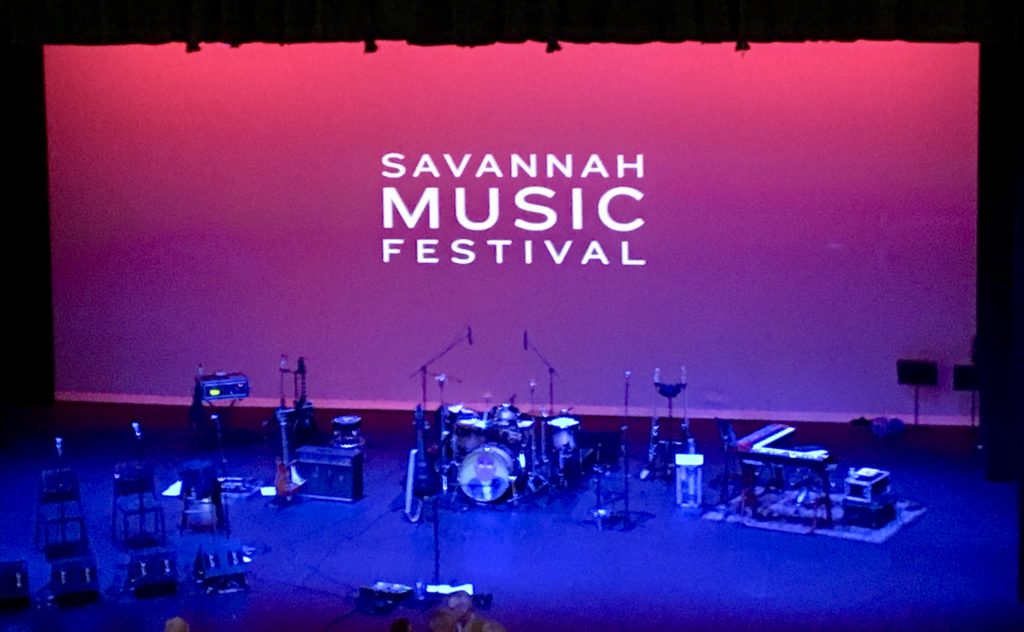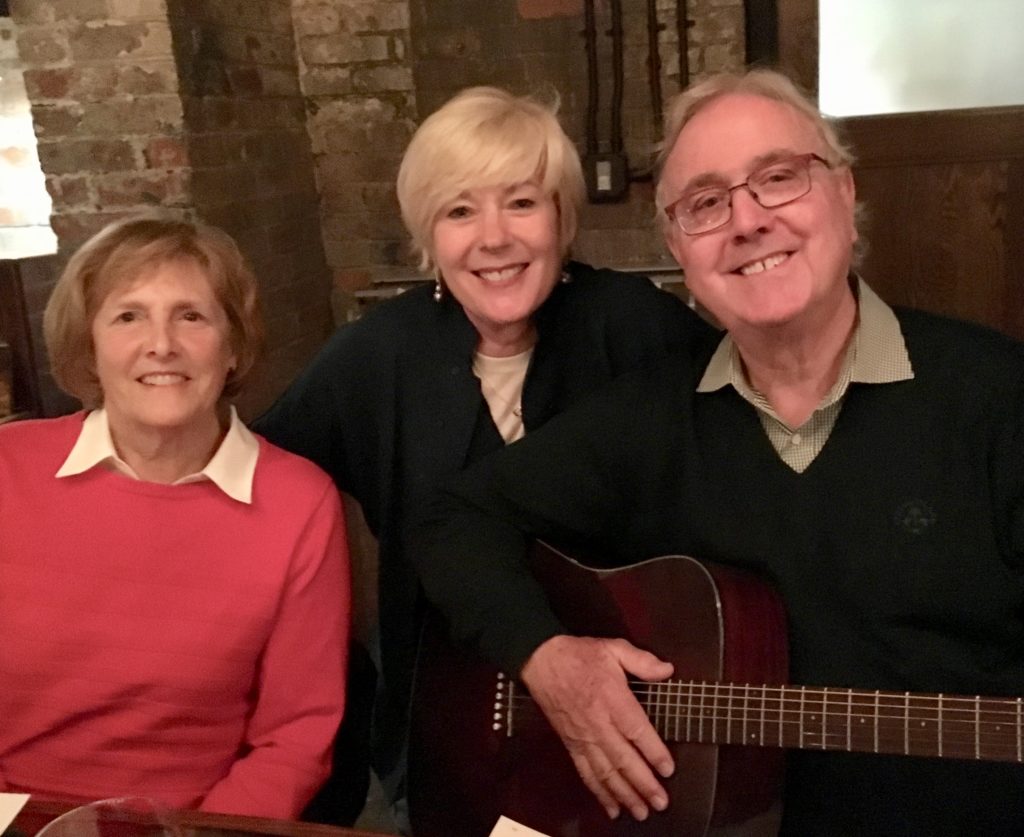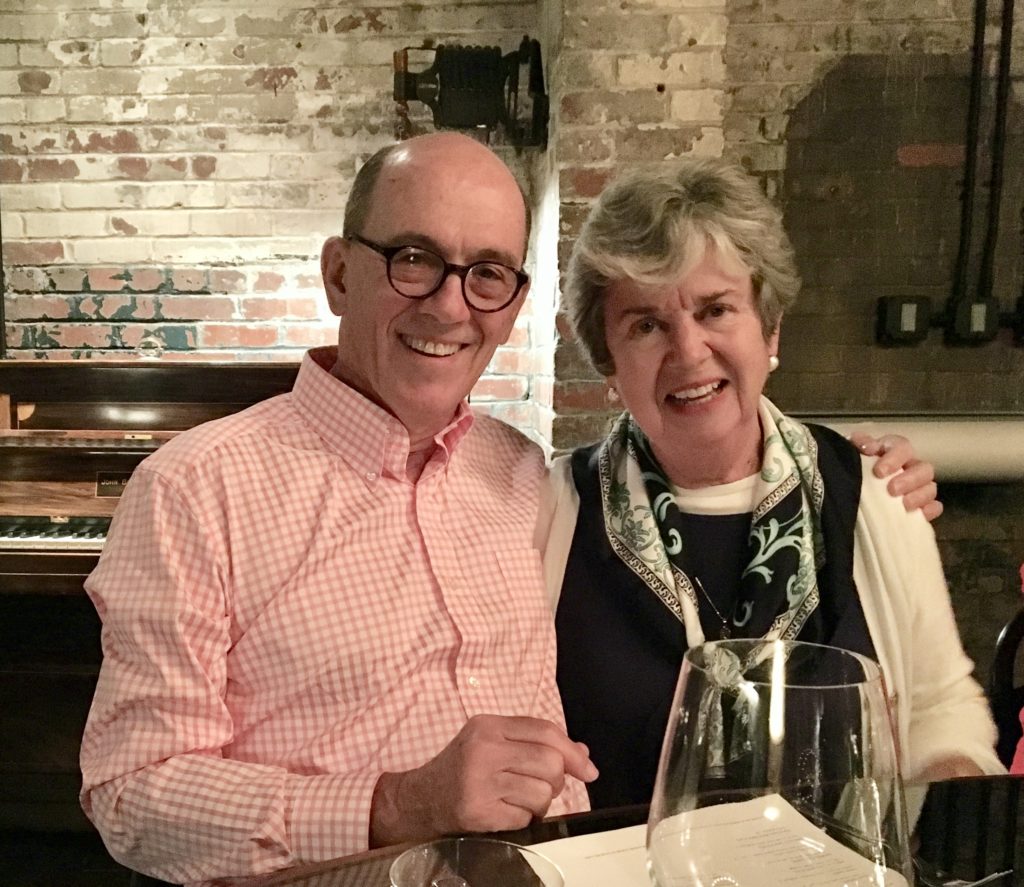Bach and Banjos
 Two exciting concerts highlighted our fourth visit to the annual Savannah Music Festival. Completely new to me was ÜberBach, the music of Munich-based Iranian composer Arash Safaian. This man has immersed himself in the music of Johann Sebastian Bach. There are over one thousand items listed in the Bach-Werke-Verzeichnis (BWV), the catalog of his compositions. Inspired by several different works in this catalog, Safaian has created new concertos for piano, vibraphone and chamber orchestra. The CD ÜberBach picks up where Bach left off three hundred years ago.
Two exciting concerts highlighted our fourth visit to the annual Savannah Music Festival. Completely new to me was ÜberBach, the music of Munich-based Iranian composer Arash Safaian. This man has immersed himself in the music of Johann Sebastian Bach. There are over one thousand items listed in the Bach-Werke-Verzeichnis (BWV), the catalog of his compositions. Inspired by several different works in this catalog, Safaian has created new concertos for piano, vibraphone and chamber orchestra. The CD ÜberBach picks up where Bach left off three hundred years ago.
Pianist Sebastian Knauer, the Zurich Chamber Orchestra, and its director, Daniel Hope, brought this music from Germany to Georgia, thrilling a large audience on Saturday afternoon, March 31. Along with our friends Jim and Allene Cooley and Kate Richards, Steve and I marveled at the skill of the players and the glorious sounds they produced. I bought the CD and the concertos have become “ear worms” in my head. Later, Jim challenged me to explain why I found it so fascinating. This 4-minute video introduces Knauer and Safaian and provides samples of their collaboration with the Zurich Chamber Orchestra.
I love Bach’s music so much that I often begin my daily practice by playing five or six preludes or inventions. One favorite is Bach’s Prelude in F major. When I started practicing it in seventh grade, my father called it “doodle-daddle-deedle-daddle” music because its sixteenth-note rhythms were so prominent. Like other Baroque composers, Bach often arpeggiated chords, presenting them one note at a time in rapid patterns to prolong each harmony, because block chords faded fast on harpsichords and claviers, the precursors of modern pianos. Similar rhythmic patterns picked by guitarists also pervaded the Country and Western music my father liked, but they were subordinate to sung ballads. My mother and I preferred Bach.
Soon after learning several of Bach’s easy preludes, I began exploring his Two-Part Inventions, in which successive voices enter in harmony with the first. (An Invention is a canon or round, like “Row, Row, Row Your Boat.”) I love to play these Inventions and their more elaborate relatives, Fugues, addicted to their ingenious construction. Safaian starts with a Bach prelude or canon, but reframes its construction and enriches the harmonies with additional layers of sound, taking advantage of the power of the modern piano, the colors of the vibraphone, and the support of superb chamber players on superb instruments. It’s nutritious Bach served in delicious sauces. Wow!
At the concert, Knauer first played an original Bach piece, Concerto in D Minor (BWV 1052), with the Zurich Chamber Orchestra. I performed a two-piano arrangement of this concerto in graduate school at Catholic University. Here is the third movement played by pianist Joel Hastings:
This Bach set the stage for ÜberBach. In Halleluja, the first movement of Safaian’s 1st Concerto, “Infinite Games,” we hear similar themes explored and enhanced.
Contrast what you’ve just heard with a performance of the original Alleluia from Bach’s Cantata “Es ist ein Kind geboren” (To us a Child is born), BWV 142:
How interesting to compare Bach with ÜberBach! The choir and the organ in the former are missing in the latter. Instead, Safaian highlights the virtuosity of the pianist, adds the vibrant vibraphone, and creates a new way of expressing joy–Hallelujah! Some purists may be skeptical about recomposing Bach, but my ears trust Safaian’s respectful updates and welcome new revelations about familiar music. And the Halleluja is just the first of fifteen tracks on the CD. On Track 11, I love how Safaian reverses Bach’s Organ Fugue in G minor, BWV 578, so that the development of the theme comes first, enhancing the listener’s anticipation of the unforgettable opening subject.
Bach’s music is central to my life, a joy I shared with my parents and my brothers. Harry discovered the Carmel Bach Festival when he studied at the Army Language School in Monterey CA in 1960 and encouraged me to learn more Bach. Joel invited me in 2001 to go with him on a delightful tour through Germany with the Houston Bach Choir, “In the Footsteps of J.S. Bach.” I knew Steve was the man for me when he gave me a recording of Bach’s St. Matthew’s Passion the Christmas we got engaged. On one of my masters recitals, I played Toccata in G-major, BWV 916.
To me, Bach represents the highest plane of music and faith. Bach inscribed his sacred compositions with the Latin phrase Soli Deo gloria, or “to the glory of God alone.” Philosopher Alain de Botton points out that
Most contemporary music is about love between two people. What makes Bach’s music particularly striking is that it’s about the love of God. This should present a hurdle to someone who, like me, doesn’t believe in God – but it doesn’t. What I appreciate in Bach is his ability to suggest to me what a belief in God feels like. His music seems to me to be about devotion to a perfect ideal – something purer, better, higher …
Yet, Bach also knew human love. His Prelude and Fugue in E-flat minor (BWV 853) expresses the anguish he felt when his first wife died while he was away on a trip. And yes, he went on to marry Anna Magdalena Bach and sire a total of twenty children.
After the excitement of ÜberBach, we met Susan and Ron Morrow for a drink at the Olde Pink House. At 7 pm we found another reward at this year’s Festival: the music-making of Béla Fleck and Abigail Washburn. Theirs is truly a human love story. Fleck is 59; Washburn, 40, and pregnant with their second child. They married in 2009. Fleck, named for Béla Bartok, adheres to the “three-finger” tradition of banjo playing; Washburn is a clawhammer player. They carried on a hilarious dialogue about how their different techniques had delayed their courtship. Their new CD, Echo in the Valley, reveals how well they appreciate and support each other. My favorite is “Sally in the Garden,” a folk song I learned in a Kodaly workshop in 1975.
I admire Washburn not only for her lovely voice, but also for the depth of her knowledge. She was the first Eastern Asia Studies major at Colorado College and learned Mandarin at Middlebury College in Vermont. Her Sparrow Quartet sang in Beijing during the 2008 Olympics and raised funds for Earthquake Relief following the Sichuan Quake of 2009. I loved the solo she sang in Mandarin. Closest to my heart is her Silk Road Tour of 2011. Music is truly the international language.
This spectacular day ended with a delicious dinner in a private dining room at Grey’s (formerly a Greyhound Bus Station). The piano was out of tune, but Ron tuned up the guitar and we made our own music!



Leave a Reply